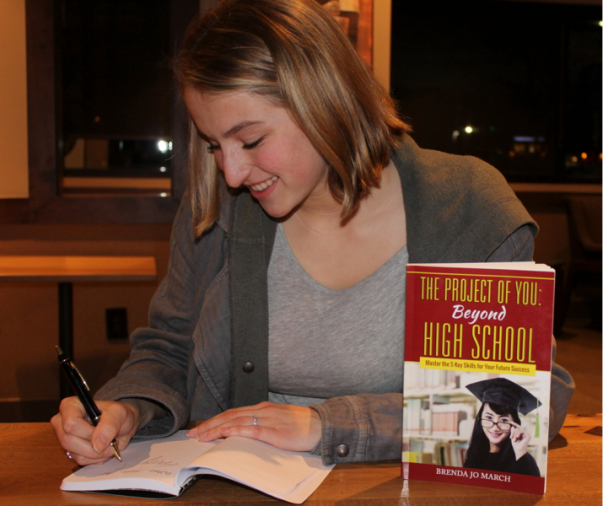 In a recent survey, we asked highschool students: “What is the most difficult part of choosing a college?” Nearly a quarter of them responded that they don’t have a clear career path, and another quarter responded that they are worried about choosing the right major. In the progressive society we live in today, it is challenging for young adults to find their passion and follow it. First of all, there is just an abundance of options. With a wide range of fields and sub fields that adolescents have the opportunity to pursue, it can be tough to narrow down the most apt choice for them. Additionally, today’s world tends to encourage chasing careers that pay well, rather than going after the things that spark a fire in us.
In a recent survey, we asked highschool students: “What is the most difficult part of choosing a college?” Nearly a quarter of them responded that they don’t have a clear career path, and another quarter responded that they are worried about choosing the right major. In the progressive society we live in today, it is challenging for young adults to find their passion and follow it. First of all, there is just an abundance of options. With a wide range of fields and sub fields that adolescents have the opportunity to pursue, it can be tough to narrow down the most apt choice for them. Additionally, today’s world tends to encourage chasing careers that pay well, rather than going after the things that spark a fire in us.
Deciding what you want to do with your life is a huge moment. It’s the moment where cutting class to grab breakfast at WaWa with your friends turns into running to WaWa to grab coffee because you’re the new intern. It’s the moment where pulling an all-nighter to finish that essay turns into pulling an all-nighter to finish the article that your boss “wants on his desk by 7am sharp”. It’s the moment where your family vacation touring Ital becomes your semester abroad studying in Italy. The career path you choose ultimately dictates how the rest of your life will play out. Therefore, it is vital that you pick something that will bring color into your life, and joy into your heart.
Finding out what you feel passionate about through experimentation and experience is the best way to get started on choosing the right career path or major for you. We guide students in doing just that at the Young Empowered Speakers Program. Instead of being given a topic to write their speeches on, students are to research something that touches on their interests and convictions for the future. They then develop and deliver these speeches over the course of the program, with help exploring their topics. By the end of this process, students gain a better understanding of their attitudes toward the topics they chose. Just by finding out their feelings toward their potential interests, these students get one step closer to narrowing down what they want in a career or major. It is vital to understand that not only is it beneficial to add things to the list of possibilities, but also to cross things off. Finding out that you don’t feel strongly about something you thought you would is extremely helpful in obtaining a better sense of self. As time goes on and you go through the process of trial and error, you will eventually discover something that brings color into your life, and joy into your heart. At that point, you know what world you are ready to explore.
If you can determine the sphere of activity that intrigues you, you will most likely be able to pick a major. Majors tend to be generally broad, and can apply various related careers. When you want to choose a career, things get a little more detailed. Regardless, the same mantra of experimentation and experience applies. Taking internships, job shadowing, doing research, and talking to professionals in your chosen field are all key ways to cross things off until one single career remains on your list. So, what are you waiting for? Put yourself out there and embark on the hunt to find the perfect path for you.
-Olivia Hunt
 My main objective in writing this blog is to connect to several different kinds of people that share on thing in common: a passion. Now, not everyone has to have the same passion. All that you need to get something worthwhile out of this blog is a relentless thirst to do what truly calls to you.
My main objective in writing this blog is to connect to several different kinds of people that share on thing in common: a passion. Now, not everyone has to have the same passion. All that you need to get something worthwhile out of this blog is a relentless thirst to do what truly calls to you.



 Going into the New Year, we’ll all be making resolutions of our own. Some will stick with them, and some will drop them by the end of 2017’s first week. Most of those who give up are the infamous dieters. Whether it be Weight Watcher’s, Veganism, whole-foods-only, or even the all powerful and evil lemon and cayenne pepper water cleanse, diets tend to be unsuccessful because they are just too harsh. If your nutrition is in check, but you’re still looking for the perfect New Year’s resolution, try taking a diet from life.
Going into the New Year, we’ll all be making resolutions of our own. Some will stick with them, and some will drop them by the end of 2017’s first week. Most of those who give up are the infamous dieters. Whether it be Weight Watcher’s, Veganism, whole-foods-only, or even the all powerful and evil lemon and cayenne pepper water cleanse, diets tend to be unsuccessful because they are just too harsh. If your nutrition is in check, but you’re still looking for the perfect New Year’s resolution, try taking a diet from life.

 We all love to linger in the regions most familiar to us, but it can be more than beneficial to explore those that we have never before set foot in. This idea can be applied not only in a traditional school setting, but also in everyday life. It’s the unexplored, the unknown, and the unfamiliar that hold truths about us we’ve never cared to reveal or discover.
We all love to linger in the regions most familiar to us, but it can be more than beneficial to explore those that we have never before set foot in. This idea can be applied not only in a traditional school setting, but also in everyday life. It’s the unexplored, the unknown, and the unfamiliar that hold truths about us we’ve never cared to reveal or discover.